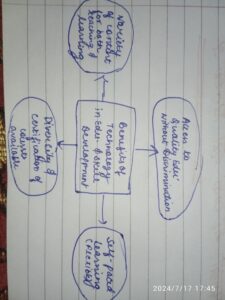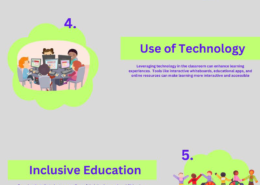How do the demands of today’s job market emphasize the necessity for both education and specific skills, and how can individuals effectively balance acquiring both?
Technology act like a catalyst in process of education.It made education accessible to remote areas, breaking geographical barriers. Online courses, webinars, and digital libraries have democratized learning, allowing anyone with internet access to acquire new skills and knowledge. It has personalizRead more

Technology act like a catalyst in process of education.It made education accessible to remote areas, breaking geographical barriers. Online courses, webinars, and digital libraries have democratized learning, allowing anyone with internet access to acquire new skills and knowledge.
It has personalized learning experiences, adapting to individual learning styles and paces. Virtual reality technologies have made learning more interactive and engaging.
Technology has also transformed skill development.Open and distance learning also played a supporting role with technology . This made Online certification courses, coding bootcamps, and MOOCs have made it easier for individuals to acquire industry-relevant skills. Digital portfolios, quizzes and online assessments have made skill validation more transparent and efficient.
In nutshell technology has not only made education and skill development more democratized but has also made it more inclusive and personalized.
See less

In today's professional landscape, skills complement education by bridging the gap between theoretical knowledge and practical application. While education provides foundational understanding and critical thinking abilities, specific skills enable individuals to execute tasks effectively in real-worRead more
In today’s professional landscape, skills complement education by bridging the gap between theoretical knowledge and practical application. While education provides foundational understanding and critical thinking abilities, specific skills enable individuals to execute tasks effectively in real-world scenarios. The demands of the job market emphasize this dual necessity: employers seek candidates who not only possess a formal education but also demonstrate proficiency in relevant technical skills such as coding languages, digital marketing strategies, or project management tools.
Effectively balancing both education and skills acquisition involves proactive steps such as pursuing internships, certifications, or hands-on projects during education. Continuous learning through online courses, workshops, and industry networking also plays a crucial role. Individuals should focus on aligning their skill development with current industry trends and demands to remain competitive. By combining a strong educational foundation with practical skills, professionals can not only meet but exceed the expectations of today’s dynamic job market, ensuring they are well-prepared to contribute effectively to their chosen field.
See less